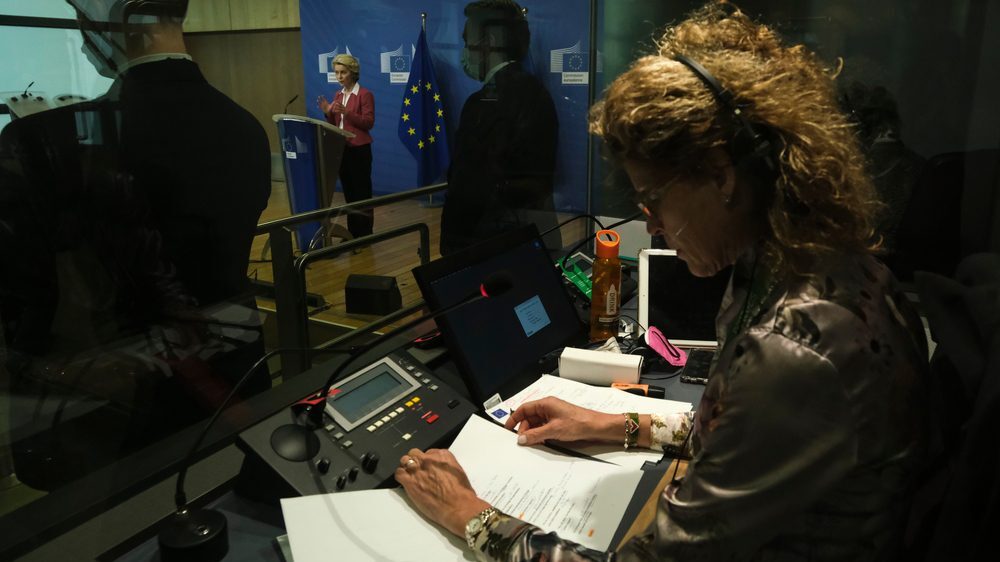
Photo: Alexandros Michailidis / Shutterstock.com
A new EU auditor’s report has lambasted the European Parliament for resorting to external third-party interpreting services during an industrial dispute with translators last year as officials were accused of undermining workers’ “right to strike.”
Relations between the parliament and its interpreters have gradually worsened since the pandemic. Workplace conditions and the dismissal of temporary staff led to a strike from June to October 2022.
The polyglot European Parliament is obliged to provide translation services for all 24 recognised languages in the chamber. Poor work-from-home conditions contributed to a breakdown of workplace relations between translators and officials.
European institutions have struggled to grapple with hybrid working since 2020. The translator dispute was only called off after an interim agreement was reached to improve home equipment.
Auditors expressed regret that the Parliament spent €47,324 pursuing translation services outside of the EU bubble, adding that it represented a potential form of strike-breaking. Under the EU’s Charter of Fundamental Rights, workers are entitled to withdraw their labour with the Charter, recognised as a collective bargaining and strike action as a right.
Also noted in the report was the parliament’s purchase of internal COVID-19 testing centres, to the tune of €5.4 million and €600,000, largely wasted on unused body-heat detectors to screen staff for the virus.
The European Parliament employs 275 translators in total, workers often earning more than six figures each. With the prospect of automation increasing, so does the prospect of further strikes among the heavily unionised profession.
The report highlighted the poor working conditions that employees at the parliament had to endure while working from home during the pandemic.
Auditors also expressed concern that Parliament is experiencing difficulties retaining “young professionals” due to the attraction of the private sector over parliamentary life.
Politico reported this week that AI technology has already replaced hundreds of EU translation jobs. Figures from the EU Commission show that the number of translators employed by the EU has shrunk by 17% in the past decade.
